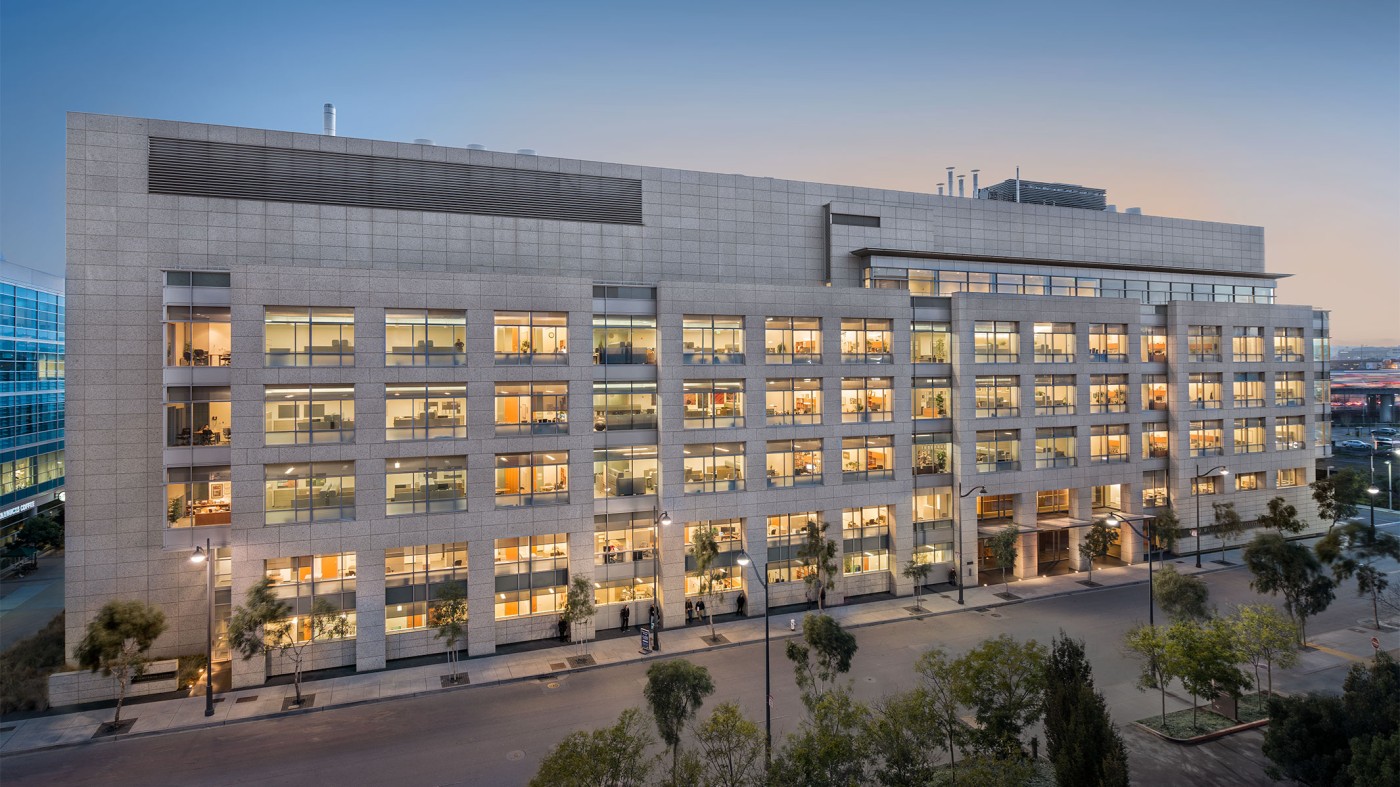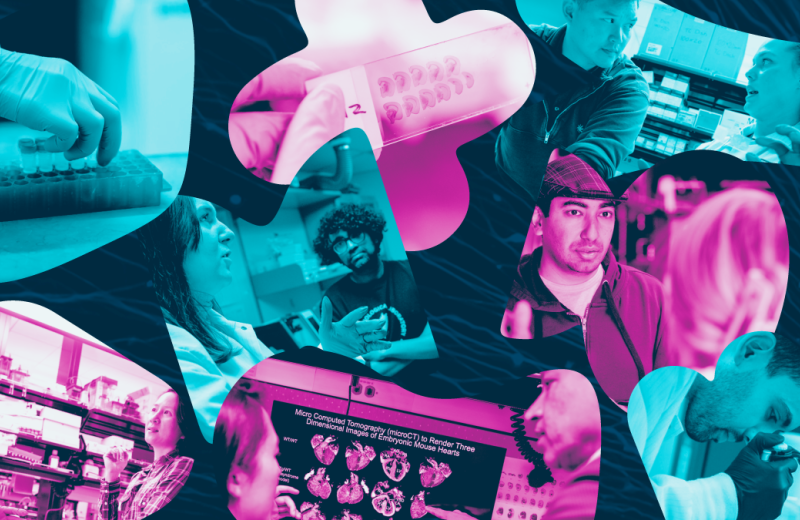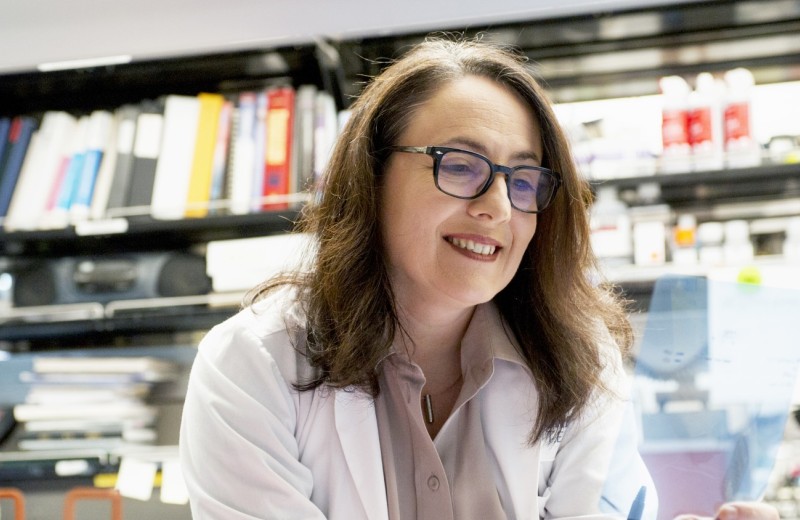Gladstone NOW: The Campaign Join Us on the Journey✕

SAN FRANCISCO, CA—Stimulating the growth of new neurons to replace those lost in Alzheimer's disease (AD) is an intriguing therapeutic possibility. But will the factors that cause AD allow the new neurons to thrive and function normally? Scientists at the Gladstone Institute of Neurological Disease (GIND) have discovered that two main causes of AD amyloid-beta (Aβ) peptides and apolipoprotein E4 (apoE4) impair the growth of new neurons born in adult brains. What is more, they have identified drug treatments that can normalize the development of these cells even in the presence of Aβ or apoE4. The findings are described in two separate papers published in the current issue of Cell Stem Cell.
Although it had long been assumed that neurons cannot be renewed, it is now well established that new neurons are generated throughout the lives of mammals. One brain region in which new neurons are born in adults, the hippocampus, is involved in learning and memory and affected severely by Alzheimer's disease.
GIND investigator Li Gan, PhD, and her collaborators studied the development of neurons born in the hippocampus of adult mice genetically engineered to produce high levels of human Aβ in the brain. Surprisingly, Aβ initially accelerated the development of newborn neurons but then profoundly impaired their maturation at later stages of development.
“Interestingly,” Dr. Gan said, “we were able to protect the newborn neurons and ensure their normal development with drugs that counteract Aβ-induced abnormalities in neural network activity. It is possible that these drugs could support the development of neurons from stem cells even in the hostile environment of the AD brain.”
In a complementary study, GIND investigator Yadong Huang, MD, PhD and his team focused on apoE4, the major genetic risk factor for AD. The team used genetically engineered mice to study the effects of different human apoE variants on the maturation of neural stem cells or progenitor cells, from which new neurons develop in the adult brain. They found that apoE4 also impairs the development of new neurons in the hippocampus and identified drug treatments that could block these detrimental effects.
“Our findings suggest that apoE4 inhibits the development of newborn neurons by impairing specific signaling pathways and that boosting these pathways with drugs may be of therapeutic benefit,” said Dr. Huang. “It might allow us to encourage the development of new neurons from stem cells to replace those lost in apoE4 carriers with AD.”
“Although stem cell therapy for AD is still a long ways off, these studies have identified strategies to overcome major obstacles in the path towards this goal,” said GIND Director Lennart Mucke, MD, who coauthored one of the studies. “They clearly demonstrate that drugs can be used to improve the development of newborn neurons in memory centers of the adult brain, even in the presence of toxic factors widely presumed to cause AD.”
Dr. Gan's research was supported by the J. David Gladstone Institutes and the L.K.Whittier Foundation. Binggui Sun, Brian Halabisky, Yungui Zhou, Jorge Palop, Guiqiu Yu, and Lennart Mucke also contributed to this research. Dr. Huang's research was supported by the J. David Gladstone Institutes, the California Institute for Regenerative Medicine, and the National Institutes of Health. Gang Li, Nga Bien-Ly, Yaisa Andrews-Zwilling, Aubrey Bernardo, Karen Ring, Brian Halabisky, Changhui Deng, and Robert W. Mahley also contributed to this research.
Dr. Gan's and Dr. Huang's primary affiliations are with the Gladstone Institute of Neurological Disease where their laboratories are located and all of their research is conducted. Dr. Gan is also Assistant Professor of Neurology and Dr. Huang is Associate Professor of Pathology and Neurology at the University of California, San Francisco.
In addition to his primary affiliation as Director of the Gladstone Institute of Neurological Disease, Dr. Mucke is the Joseph B. Martin Distinguished Professor of Neuroscience and Professor of Neurology at the University of California, San Francisco.
Support Discovery Science
Your gift to Gladstone will allow our researchers to pursue high-quality science, focus on disease, and train the next generation of scientific thought leaders.
Gladstone’s Scientific Highlights of 2025
Gladstone’s Scientific Highlights of 2025
From fundamental insights to translational advances, here’s how Gladstone researchers moved science forward in 2025.
Gladstone Experts Alzheimer’s Disease Autoimmune Diseases COVID-19 Neurological Disease Genomic Immunology Cardiovascular Disease Data Science and Biotechnology Infectious Disease Conklin LabScience in Seconds | The Thinking Microscope: Research Powered by an AI Brain
Science in Seconds | The Thinking Microscope: Research Powered by an AI Brain
In this video, Steve Finkbeiner and Jeremy Linsley showcase Gladstone’s groundbreaking “thinking microscope”—an AI-powered system that can design, conduct, and analyze experiments autonomously to uncover new insights into diseases like Alzheimer’s, Parkinson’s, and ALS.
Gladstone Experts ALS Alzheimer’s Disease Parkinson’s Disease Neurological Disease Finkbeiner Lab AI Big DataKaterina Akassoglou Receives Zenith Fellows Award to Advance Alzheimer’s Research
Katerina Akassoglou Receives Zenith Fellows Award to Advance Alzheimer’s Research
Akassoglou has opened doors to understanding how the blood protein fibrin is involved in Alzheimer’s and other neurodegenerative diseases.
Awards News Release Alzheimer’s Disease Center for Neurovascular Brain Immunology Akassoglou Lab



